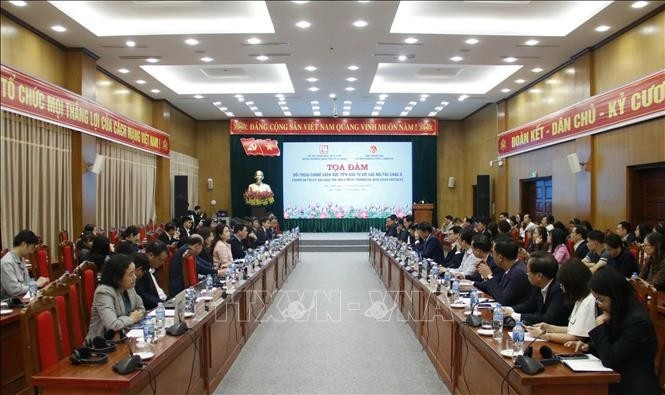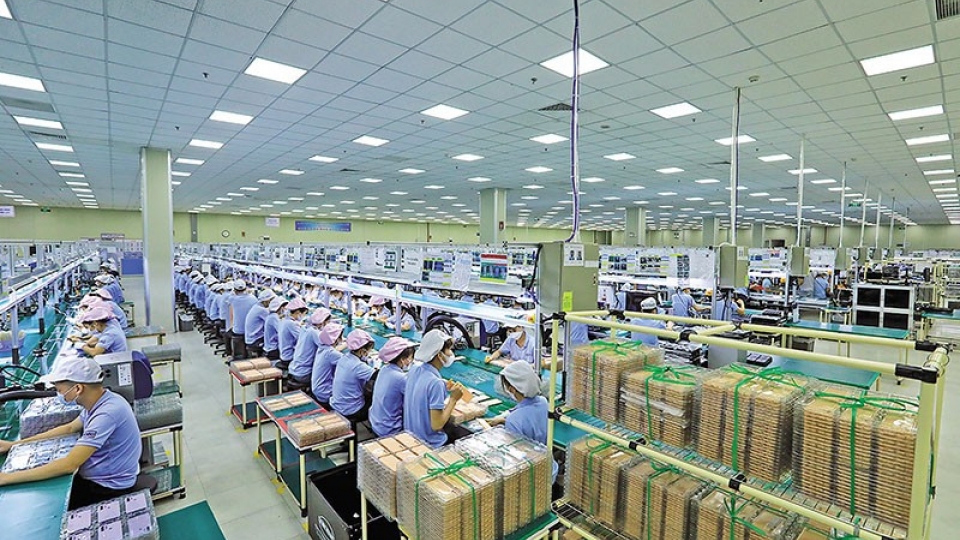Bac Ninh hosts investment promotion policy dialogue with Asian partners
The People’s Committee of the northern province of Bac Ninh, in coordination with the Ministry of Finance’s Foreign Investment Agency, held a policy dialogue on investment promotion with Asian partners on November 7.

Vu Van Chung, deputy director of the agency, said Asian countries remain Vietnam’s largest investment partners, with more than 35,600 valid projects and total registered capital of US$402 billion, accounting for nearly 80% of total FDI inflows into the country. Most Asian investment projects focus on manufacturing and processing (66.7%), real estate business (12.4%), and electricity, gas, and water production and distribution (8.6%).
Chung noted that Vietnam is well-prepared to welcome a new wave of investment, focusing on key solutions such as institutional reform, development of high-quality human resources, comprehensive infrastructure investment, green energy assurance, digital transformation, and strengthening coordination between local authorities and investors.
Located strategically within the Hanoi capital region, with well-developed infrastructure, a skilled workforce, and a dynamic administration, Bac Ninh is fully positioned to become a hub for next-generation FDI from Northeast Asia.
Ngo Tan Phuong, Vice Chairman of the provincial People’s Committee, said the province currently hosts over 3,300 valid FDI projects with total registered capital of over US$46 billion. Bac Ninh prioritises high-tech, clean, and environmentally friendly industrial projects that deliver high added value, foster supply chain linkages, and maintain long-term commitments to the province.
Sharing insights on emerging investment trends from Northeast Asia and ASEAN, Le Quang Tuan, Assistant to the Chief Representative and head of the economic section at the Vietnam Economic - Culture Office in Taipei – Taiwan (China), highlighted that investors are choosing Vietnam for its political stability, open FDI policies, competitive labour costs, young workforce, improving industrial skills, and rapidly developing logistics and industrial infrastructure, particularly in Bac Ninh, Hai Phong, and Hung Yen. He also noted that the Vietnamese Government’s strategic focus on semiconductor development through 2030 presents significant opportunities.
Hagiwara Ryotaro, head of research at the Hanoi Office of the Japan External Trade Organisation (JETRO), affirmed that Vietnam remains the most attractive investment destination for Japanese enterprises in Southeast Asia. In Bac Ninh alone, Japanese firms have implemented 133 projects with combined investment of over US$2.1 billion, shifting from traditional manufacturing to high-tech and green energy sectors.
A recent JETRO survey found that 56% of Japanese firms operating in Vietnam plan to expand their business, the highest rate in Southeast Asia. Vietnam continues to be highly valued for its market size, growth potential, and socio-political stability.



